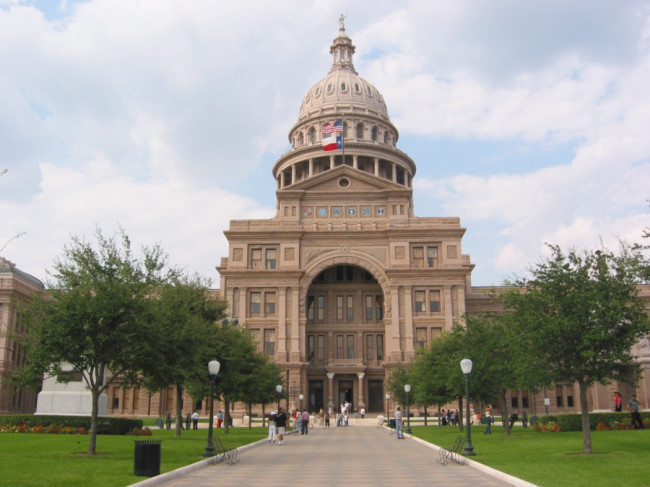
In 2005, Texans ratified an amendment to the state constitution, which defines marriage as only between a man and a woman. The amendment passed with 76 percent of the vote. This year, a federal judge in San Antonio, Texas, ruled this amendment unconstitutional.
“I don’t know if that will come to anything,” SPECTRUM President Shannon Hart said. “But just the fact that that happened shows that Texas has the possibility of legalizing gay marriage.”
U.S. District Judge Orlando Garcia, who decided the ruling, stayed it from taking effect until a higher court reviews the case on appeal.
Cal Jillson, professor of political science at SMU, specializes in Texas politics. Jillson believes Texas will drag its feet on the path to legalizing same-sex marriage.
“Texas will be less accepting of gay rights than will other parts of the country,” he said. “This is another civil rights issue where Texas is lagging badly and will continue to lag until it is forced by outside forces to adapt grudgingly to gay marriage.”
According to Public Policy Polling in July of 2013, 34 percent of Texas voters supported gay marriage, with 57 percent opposed. However, when asked if they would approve of civil unions between same-sex couples, 63 percent of voters supported them while 31 percent opposed.
Sophomore William Hammond believes a fair amount of SMU students do support gay marriage.
“Based on the LGBT Senate seat vote, I would say that those who voted in favor of it would support gay marriage,” Hammond said.
The Student Senate passed a proposal to add an LGBT special interest seat. When the referendum went to the student body, it received 59 percent of the vote in favor, but failed to receive the required 2/3 majority.
“I think that slowly people are starting to understand that everyone is going to be different and people should be allowed to do whatever they want to do,” senior Adrian Montemayor said.
After the LGBT senate seat referendum failed to pass, students in the LGBT community launched a petition campaign. As a result, the student body re-voted on the referendum. While the referendum was again voted down, the vote demonstrates the salience of the LGBT community as a constituency on campus.
Nationwide, Jillson believes the influence of the LGBT community has more impact than its numbers might suggest.
“Its numbers are modest,” he said. “There is an activist community that is engaged and influential, but the best data on LGBT voting is in the low- to mid-single digits. You’re looking at a voting block from 3 to 5 or 6 percent. It’s a small, but engaged and generally an affluent community.”
Members of the LGBT community made cases both against the federal Defense of Marriage Act and Texas’s constitutional marriage amendment. In United States v. Windsor, the Supreme Court declared DOMA unconstitutional. Now, all states are required to recognize same-sex marriages, even if the state still considers gay marriage illegal.
But according to Hart, gay marriage isn’t the only goal the LGBT community should have in mind.
“While I think gay marriage should exist, it annoys me that people see it as the only issue,” she said. “To me, LGBT people being bullied, murdered or committing suicide because of their sexual orientation or gender identities seems more important than gay marriage.”
The Texas School Safety Center claims “LGBT youth are at an elevated risk of bullying.” A 2005 study states that nine out of 10 LGBT students have reported being bullied in 2004. According to a 2013 study, LGBT youth are more likely to be bullied online at 42 percent to 15 percent of bullying in non-LGBT youth.
Although it appears that being against same-sex marriage is the majority position in Texas, those who are opposed to gay marriage are hesitant to speak out about it. Several students who stated that they were against gay marriage were also uncomfortable with having their comments published.
“I guess they don’t want to say it because they don’t want to feel mean,” Montemayor said. “People don’t like to get judged by their opinions.”
“The movement is rapid toward an acceptance of gay rights in general and marriage rights in particular,” Jillson said. “You have a lot of reluctance on the part of people to speak about their feelings when those feelings are different than what they know the flow of events to be.”








